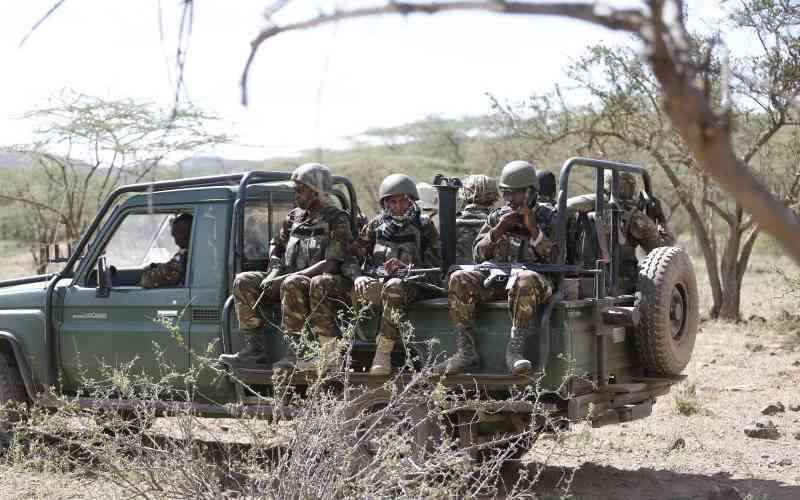×
The Standard e-Paper
Smart Minds Choose Us

Focus has now shifted to the ongoing security operations to combat bandits in the North Rift region with the hope that, unlike other previous moves by the government, this one will bear fruit.
Before the year 2000, the most intensive and extensive cattle raids used to happen across the Kenya-Uganda border in Turkana East and Kacheliba constituencies.